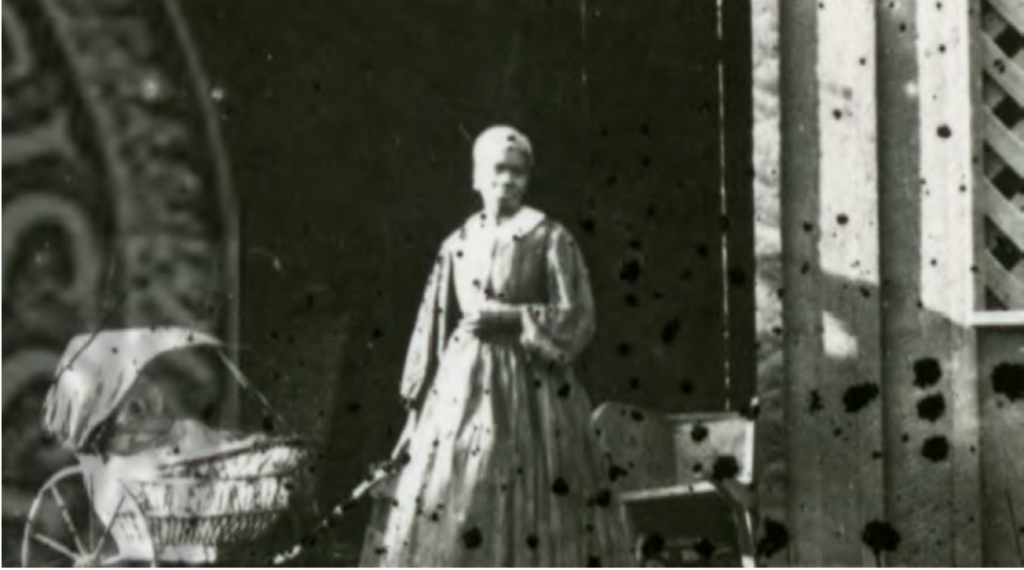Slavery Research and Public Engagement Projects

Detail of a collodion glass plate negative showing woman and baby carriage at the University of Mississippi made by Edward C. Boynton, a professor of chemistry, minerology, and geology from 1856–1861. Courtesy of UM Department of Archives and Special Collections
There is a growing trend of academic institutions studying their historical relationship to slavery. Leaders of this important movement in higher education include Brown University, the University of Virginia, Georgetown, Harvard, and Columbia, among others.
The University of Mississippi was among the first institutions in the Deep South to join this list in 2014 through the formation of a multidisciplinary faculty working group, the UM Slavery Research Group. Our group participates in this national initiative through academic partnerships such as the University of Virginia-sponsored Universities Studying Slavery Consortium. We have also been invited to national level planning workshops hosted by the Radcliffe Institute at Harvard University in March 2017. Being a part of these emerging discussions represents a tremendous opportunity for research faculty and students at the University of Mississippi to join and provide leadership in these cutting-edge research and public engagement efforts. The potential for funding and publication opportunities is tremendous and we are poised to become a central player in this new and exciting academic field.
This academic development is part of a larger international movement that recognizes the need for museums, memorials, and historic markers that commemorate slavery and tell the story of slavery to current and future generations. From the new Smithsonian Museum of African American History and Culture in Washington D.C. to the Whitney Plantation near New Orleans, we can see a growing interest in understanding the lives of the enslaved. But the expertise and staffing required to document and create these visitor experiences is currently insufficient. We anticipate a larger demand for curators, docents, historians, archaeologists and genealogists to fill these needs.
Our goal is to provide the academic space for creating new research technologies and providing training for these future scholars and interpreters. Drawing on the latest innovations in the fields of public history (how to best involve the public in constructing the stories of our past), racial reconciliation (which aims to strengthen divided communities), genealogy (which connects families and individuals to the larger national and global story), digital media technology (which utilizes data analytics to strengthen our ability to peer into the past and digital media to make our past accessible to all) and utilizing state-of-the-art research technologies in these and other fields, we are well-situated to undertake a number of research and public engagement projects that are already attracting donor interest and will put the University of Mississippi on the map as an institution at the forefront of this crucial scholarly work.
These projects include:
Rowan Oak: Renovation and Interpretation of the Servants quarters
Slavery at UM: Campus Slavery Memorialization Project
Annual Genealogy Fair
Slave Name Recovery Database
Maps: Community Digital Mapping Project